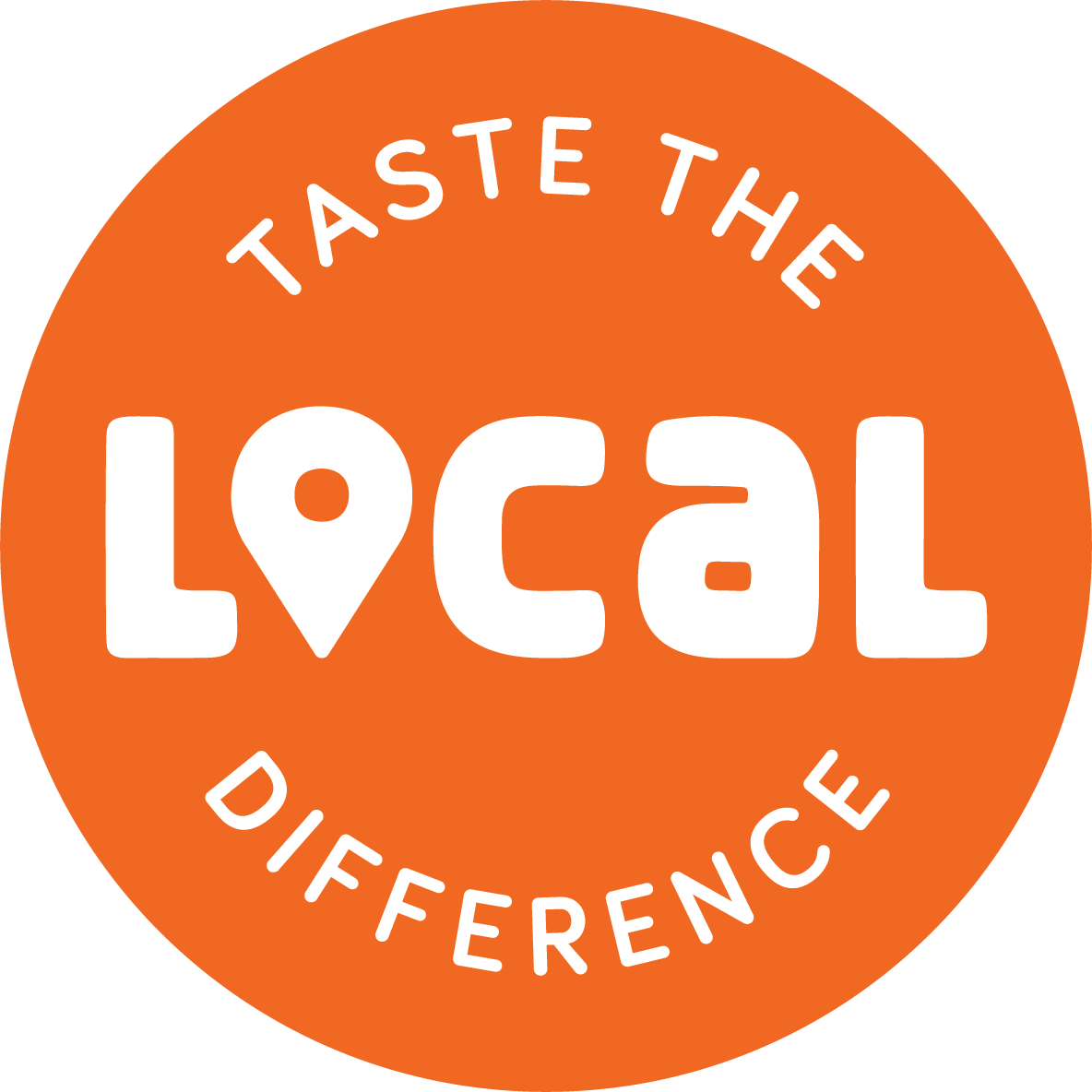Before innovation in Detroit looked like the assembly line and the first paved road, it was demonstrated in the form of agriculture. Now, Fennigan’s Farms joins a host of Black and Brown Farmers bringing agricultural innovation back to the city. Fennigan’s Farms’ unique approach is to design spaces for sustainable growth across Detroit and beyond as a means to build community resilience.
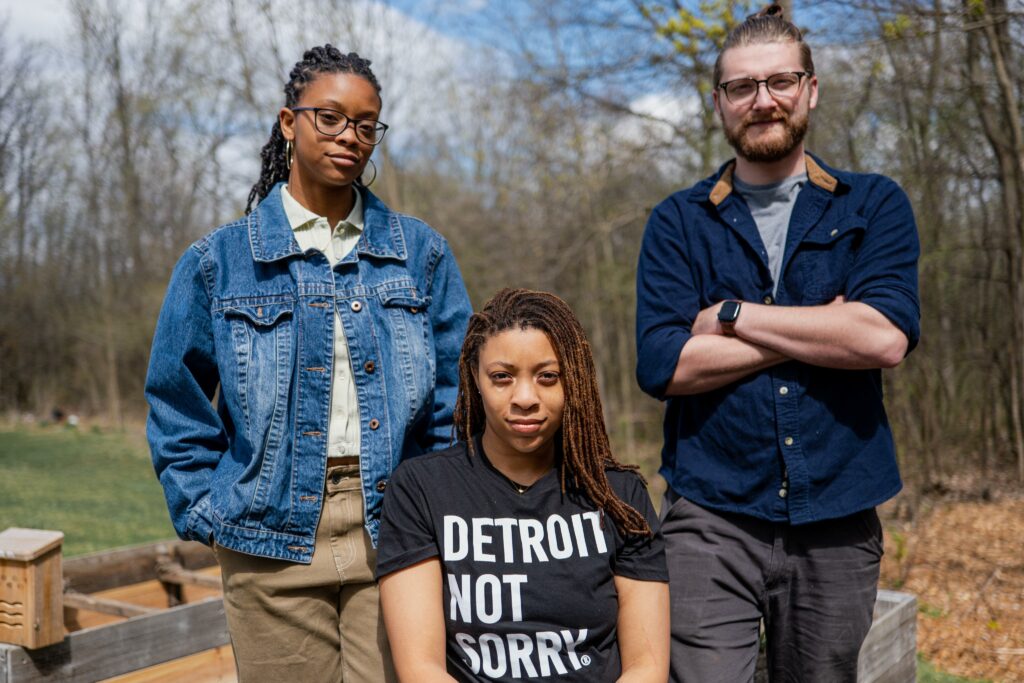
Amanda Brezzell, farmer and co-creator of Fennigan’s Farms, didn’t originally think they would work in the agriculture space. During undergrad, their studies focused on chemistry, biology, and African American studies. In graduate school, they studied Agricultural Defense and Community Resilience and that is where the connection was made. While attending Georgetown University in Washington D.C., they would commute to school, and pass a large tent city just footsteps away from some of the most expensive housing in the city. This daily dissonance focused their vision. “People aren’t eating because someone said so – it’s greed and hoarding of wealth & land,” they illustrate. Before graduating, Fennigan’s Farms started to become reality, a social media page in place and a plan for funding. From small beginnings, Brezzell’s idea has transformed into unique agricultural designs throughout the city of Detroit.
What does Fennigan’s Farms do?
Brezzell explains that Fennigan’s Farms has a two-branch mission. First, they help clients to construct what they call “Fenn Farms”, named after their kind-hearted dog, Fennigan. These spaces fit the needs of the client and are focused on food production based on cultural expression and community sovereignty. Fenn Farms come in many shapes and sizes, from a couple of raised beds, to a community garden, to repurposed shipping containers made usable for growing microgreens. Each design is specific to the space and community.
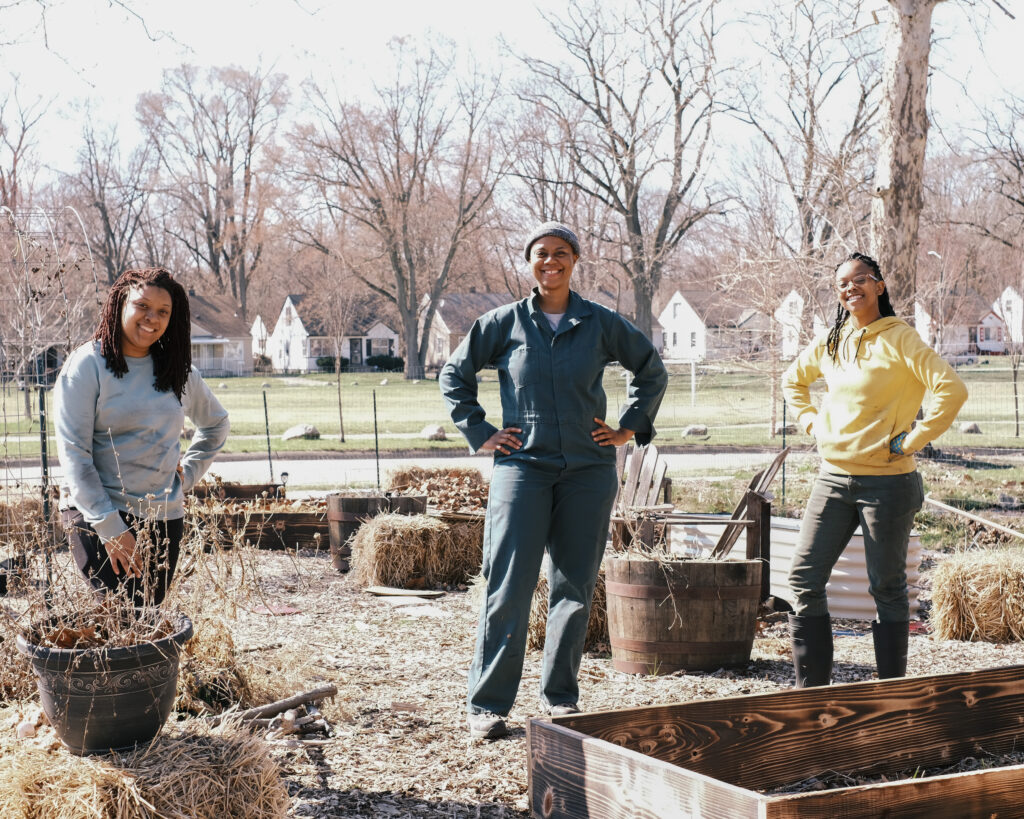
Their first of such projects was Griffin Gardens. When Amanda and their sister and co-founder, Claire, first started their work, they looked to social media. At its beginnings, Griffin Gardens had a city lot, a sketch, and a need for 8 garden beds, which they posted about on Instagram. Fennigan’s Farms jumped to help. Griffin Gardens has now surpassed the scale of their original sketch and grown into three city lots, operating as a pollinator space dedicated to bees and the flowers that help them thrive, with a weekly artisan market and clothing swap to bring the community together. Amanda is careful to note that they didn’t have the vision for Griffin Gardens – but their ability to support the implementation of a garden space and watch it thrive has been extremely rewarding.
The second branch of Fennigan’s Farms is their farm, where they use Black and Indigenous traditions such as birdhouses as pest management and native cover crops to grow produce, cut flowers, and herbs. Their herbs and flowers are sold to support their work, and their produce is available for free to the surrounding community, breaking down immediate barriers to food access. This season, their development is part of the Detroit City of Design Challenge, and their prototype space in the city will soon host repurposed shipping containers, an outdoor community kitchen, and more — all powered by solar energy. This space, and others like it, is meant to remind the community of their autonomy and ability to get to the future.
Fennigan’s Farms is passionate about sovereignty and food justice, and Brezzell stresses that they remind people that they have the tools to successfully grow food on their own or in community. They connect people to support while emphasizing that the community is not helpless. Supporting this movement towards autonomy are their seasonal educational opportunities on the farm, like helping folks learn to overwinter a garden bed, compost, or start seeds. These lessons are also available to anyone with access to the internet on their Youtube channel or Instagram page.
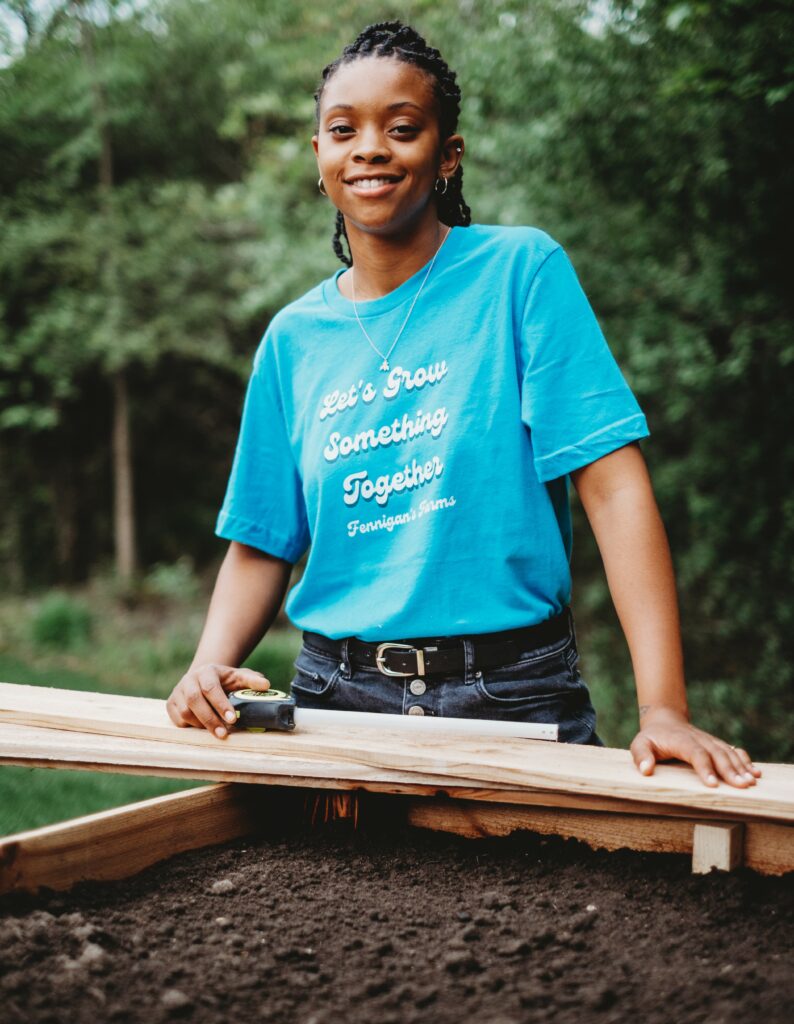
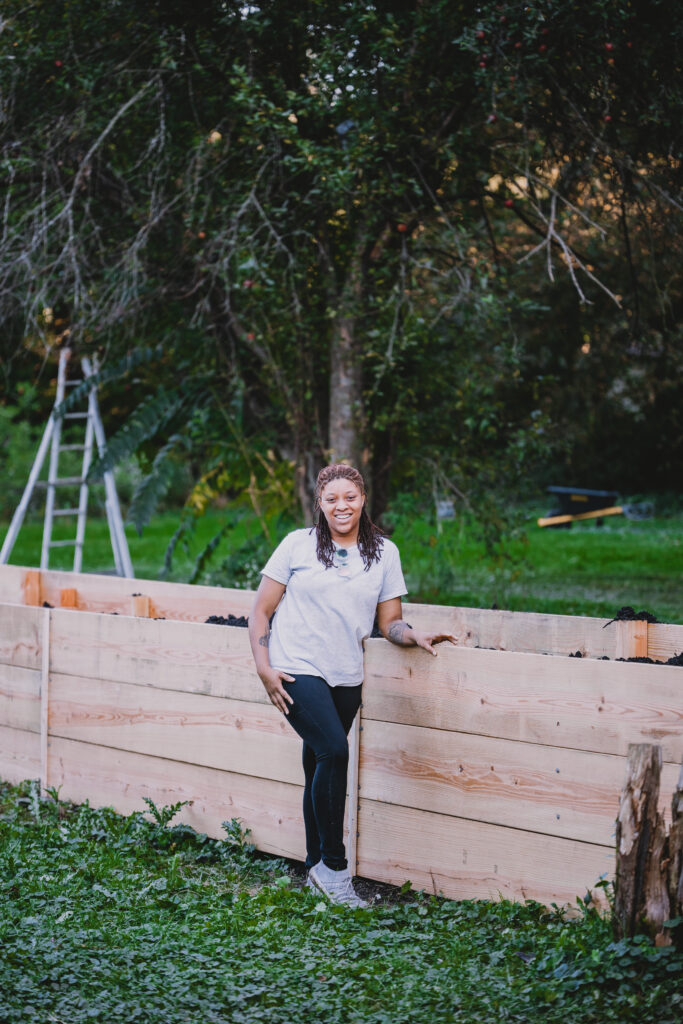
Queer Black Farming in Detroit
Brezzell says that their identity plays a big role in their perspective on agriculture. On one hand, they have seen firsthand how Black farmers can easily be dispossessed of their land, or might struggle to purchase land. It also allows them to examine their role in a land-based business. Brezzell acknowledges that chattel slavery plays a role in the value of land ownership among Black Americans, and this cannot go without acknowledging that land in this nation has been stolen from Indigenous stewardship. They include this consciously in not only the way they speak about their farm, but by actively choosing to farm using Black and Indigenous technology to help mitigate the effects of climate change. They acknowledge that this is not a solved problem, and continue to examine this juxtaposition of the “unique and specific role” of Black farming in the United States.
Amanda also acknowledges their role as a Queer Black Farmer, noting that the local food movement in Detroit is largely supported by Black and Brown Queer, Transgender, and Non Binary folk who deeply care about their communities, in part due to their experience searching for and creating safe communities. Their work is part of a long history of Queer Black community caregivers.
So why does Amanda Brezzell do what they do? “We’re tired of people telling us who gets to eat and who gets to make it to the future,” they say. Through agricultural design, Fennigan’s Farms is dedicated to supporting communities in getting to the future by reclaiming their autonomy and becoming food sovereign.
Claire Butler is the Content Strategy Specialist for Taste the Local Difference. Contact her at [email protected].
